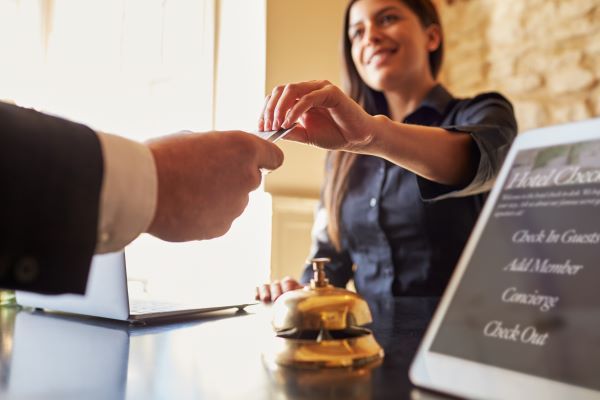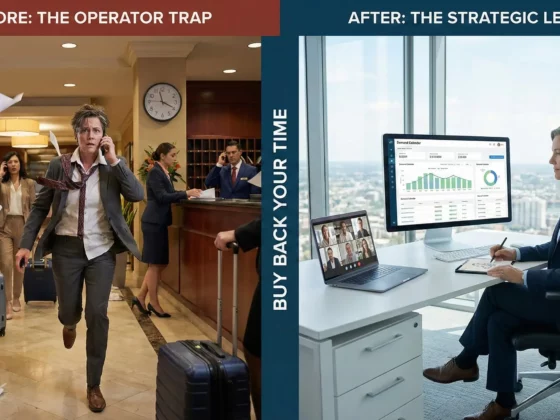
The greats of the hospitality industry have learned what so many other businesses have been slow to pick up: that in a rapidly commoditizing marketplace, one of the only reliable, sustainable, spreadable competitive advantages is providing extraordinary customer service, customer service so impressive that it drives true customer service loyalty.
Training your team to consistently deliver remarkable experiences can transform your brand’s reputation and create lifelong guests. When I train and consult on customer service delivery for a hotel’s associates, here are some of the lessons I share with them and how I get those lessons to stick.
1. Situational empathy. Situational empathy is the type of empathy that nearly every employee can learn to exhibit. Train employees to reframe before every customer interaction—when an employee has had 45 similar calls, it’s important that they have the right frame of mind going into the call 46—that this call, even if it seems rote to them, is going to be a unique experience for the caller.
2. Gold-touch customer service. A straightforward yet magical way to improve the guest experience and differentiate your property. Gold-touch customer service is a simple practice that can quickly elevate how customers think of your business, and it comes in two varieties:
- Do-extra: When you give a customer more of your effort than they’ve asked for or would reasonably expect.
- Tell-extra: When you provide customers with additional value by answering questions in a particularly thorough way or by connecting with customers on a human, shared passion level. Often, the best kind of tell-extra is when you make use of a particular tidbit of information that you’ve picked up about a particular customer. The secret to finding these nuggets is to have your ears perked up, your eyes open and your antennas, so to speak.
3. Anticipatory customer service. This means getting to where the hockey puck is headed before the puck gets there. It’s about giving the customer what they want before they ask for it, before they even know they want it, even if they never get around to asking for it. Anticipatory customer service involves hearing more than what a customer says out loud. Uncovering and taking care of unspoken needs and wishes and answering unasked questions is a master principle of hospitality that will bring any company that embraces it into a new reality: a destination populated with delighted customers who provide you with the kind of loyalty and enthusiastic referrals that will help your company grow and prosper for the long term.
4. Language selection. The language that employees use with customers can strengthen (or sabotage) the customer experience perhaps more than anything else. I recommend creating a “Say This, Not That” guide or lexicon, which outlines effective phrases alongside those to avoid. For example, replace dismissive language with empathetic alternatives that reassure and connect with guests.
5. Service recovery. While most companies have a service recovery protocol for unhappy, angry or even anxious guests, elevating this practice to a mastery level is key. Employees trained to address unhappy or anxious guests effectively can leverage the service recovery paradox: a customer who had a problem with your company resolved is more likely to become loyal and engaged as even an ambassador for your company than one who experiences no issues at all.
Mix and match training methods
When implementing a customer service training initiative, consider a mix of delivery methods to suit your hotel’s needs:
- Live training, whether in person or via Zoom. Live training is of course the classic delivery channel. It can be used exclusively, or in concert with eLearning if your approach is structured properly. As you are unique, your live training should be as well customized for your company and situation.
- eLearning. Even if you’ve exclusively relied on doing everything live and in person, consider the value of having someone build a custom eLearning customer service training program. eLearning (done right) offers the opportunity for asynchronous learning that doesn’t require everyone to train in the same place and at the same time, and that keeps paying for itself in the future any time you want to bring new employees on board.
Your business isn’t generic, and your customer service shouldn’t be either. By combining thoughtful training methods for your employees with a customer service philosophy that aligns with your brand, earning loyalty from your guests could not get easier.
Story contributed by Micah Solomon, customer service expert and guest service trainer. He can be reached at micah@micahsolomon.com.






